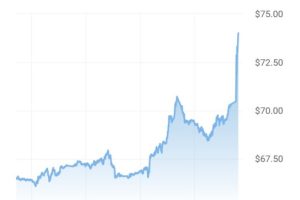Featured
Latest News

July 13, 2025
add comment
The Peoples Democratic Party (PDP) has secured a lone councillorship seat in the Lagos State local government...

Peter Obi Deny Defecting to ADC
July 13, 2025
add comment

July 13, 2025
add comment
Drama unfolded yesterday when popular entertainer and entrepreneur, Peller, reportedly disqualified over 20 Master’s Degree holders who...

July 14, 2025
add comment
In September 3, 2017, Mazi Nnamdi Kanu first claimed that former President Muhammadu Buhari had d!ed and...

Revealed: Buhari Died of Blood Cancer
July 13, 2025
add comment

Former President Buhari is dead
July 13, 2025
add comment

July 13, 2025
add comment
It has been a first half to remember at the FIFA Club World Cup final as Chelsea...

July 13, 2025
add comment
Burkina Faso’s interim President, Captain Ibrahim Traoré, has unveiled a newly renovated $300 million stadium in the...

Trump Announces 30% Tariffs on EU and Mexico
July 12, 2025
add comment

June 28, 2025
add comment
The African Export-Import Bank has sealed a partnership deal with the Creative, Reality, Entertainment, Arts and Music...

July 12, 2025
add comment
SIR AZUKA OKWUOSA: A BASTION OF QUALITY REPRESENTATION; A CATALYST FOR ANAMBRA SOUTH’S DEVELOPMENT. Dear APC Anambra...

Visionless APC and Anambra’s Hapless Cockerel
July 11, 2025
add comment

July 12, 2025
add comment
You can notice signs of HIV on the tongue during the early and late stages of the...

Probe Calabar hospital CMD Group Tells Tinubu
July 4, 2025
add comment
July 13, 2025
add comment
The Vice Chancellor of the University of Calabar (UNICAL), Prof. Florence Obi, has directed final-year Dentistry students...



































